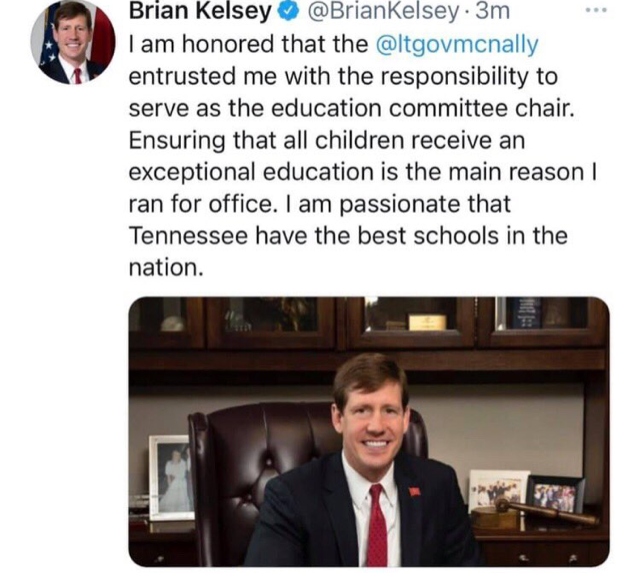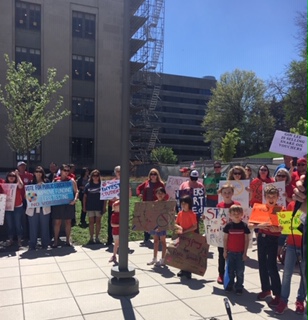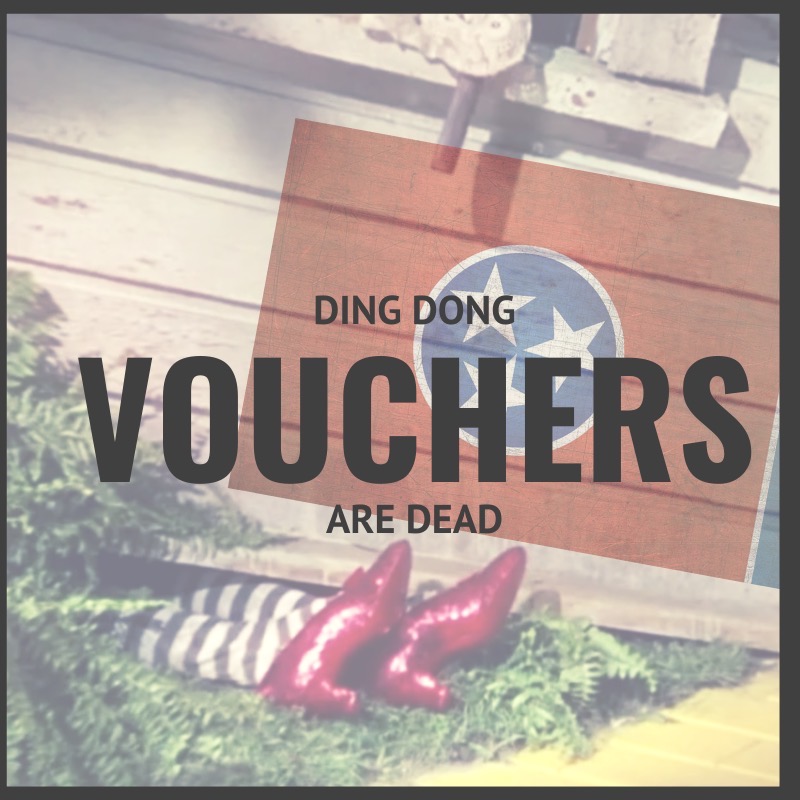A public school advocacy group in Ohio has taken notice of the rampant spread of school vouchers across the country and the role Tennessee is playing in the privatization game.
The Tennessee Supreme Court has agreed to hear the plaintiffs’ voucher appeal. In 2019 a trial judge declared the Tennessee Voucher law unconstitutional. Subsequently, the Tennessee Court of Appeals upheld the trial court decision. Now the pro-voucher crowd has been successful in getting the Supreme Court to hear the case.
Vouchers are spreading across the nation like the Kansas Grasshopper Plague of 1874. (The insects ate all the crops, even wool off the back of sheep). Vouchers eat up the funds of public school districts.
It’s really no surprise that a guy who sent out a Christmas card lauding the success of his voucher appeal would be this persistent in pursuit of privatization.
And of course, Gov. Bill Lee has been a long-time supporter of vouchers and a long-time skeptic of public schools.
Since 2012, DeVos has provided just under $100,000 to the Tennessee organization. She’s been joined by some key local donors, including Lee Beaman and Bill Lee. Yes, since 2012, Bill Lee has given $11,000 to the Tennessee Federation for Children, the state’s leading political organization supporting school vouchers.
Lee has consistently and publicly supported voucher schemes. That’s why I’m puzzled when I hear some local elected officials express support for both Bill Lee and public schools – it would seem the two are mutually exclusive.
Bill Lee renewed his commitment to fast-tracking the privatization of public schools in a speech in Jackson where he laid out his policy goals for 2020. Lee doubled-down on support of a voucher scheme that is dividing the state Republican Party.
Lee has also been an advocate of silencing school boards, embracing a proposal by former state Rep. Jeremy Durham that would allow County Commissions to override board decisions when it comes to advocacy.
So, in Bill Lee, Tennesseans have a candidate for Governor who has expressed unqualified support for a voucher program that has failed in Indiana, Ohio, and Louisiana and that will almost certainly increase state and local costs. Additionally, he wants to be sure local elected officials can’t bring a strong voice of opposition to this proposal.
That’s why I remain shocked that some board members and other elected officials express surprise at Lee’s refusal to invest in public schools even when the state is swimming in cash.
Even though as early as 2016, Bill Lee was extolling the virtues of school voucher schemes and even though he’s a long-time supporter of Betsy DeVos’s pro-voucher Tennessee Federation for Children and even though he has appointed not one, but two voucher vultures to high level posts in his Administration, it is somehow treated as “news” that Bill Lee plans to move forward with a voucher scheme agenda in 2019.
Dear public school supporters: Bill Lee is not your friend. He has never been your friend. He will not be your friend in some magical future world.

For more on education politics and policy in Tennessee, follow @TNEdReport
Your support – $5 or more – makes publishing education news possible.








